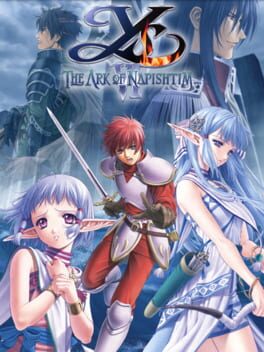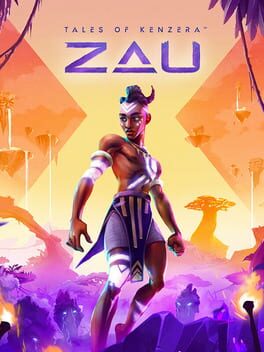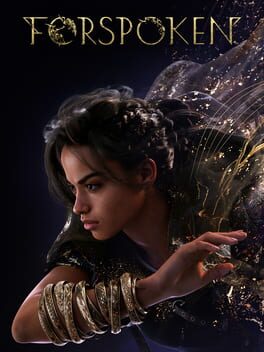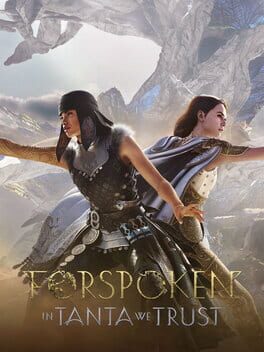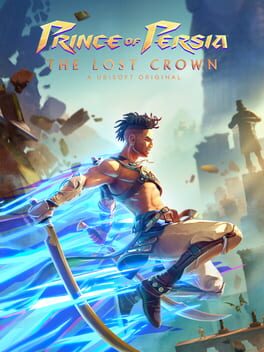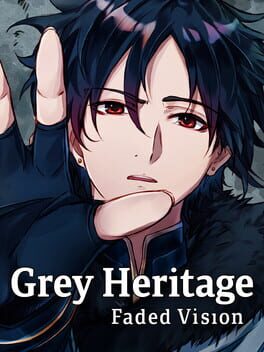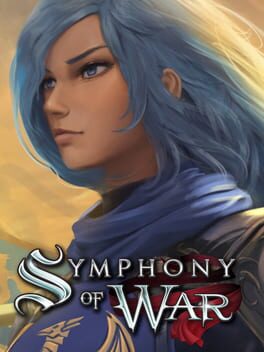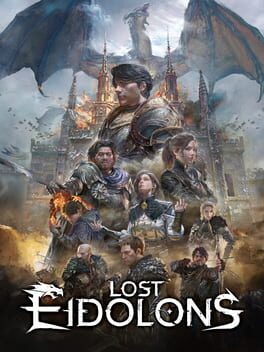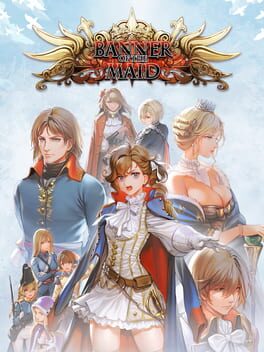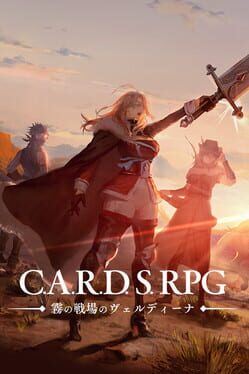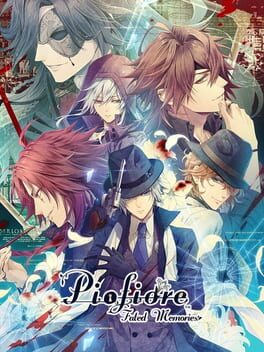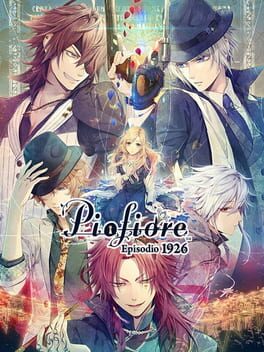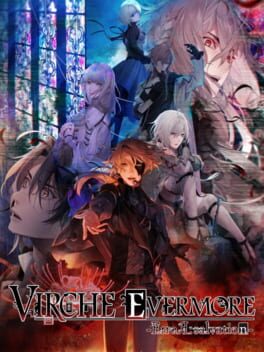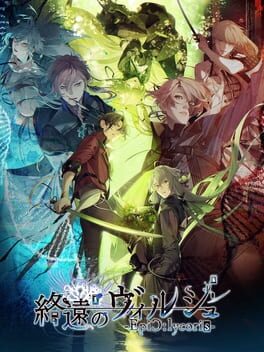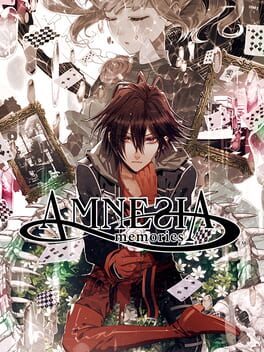tradegood
57 reviews liked by tradegood
There was no guarantee that it would turn out like this. After the one-two punch of the first two Ys games in 1987 and 1988, the series would take a number of perplexing turns through the late 80s and early 90s. Ys III, originally intended as a gaiden, was a side-scrolling platformer with only the barest hints of RPG elements. Then the two primary creative forces behind the first three Ys games, Tomoyoshi Miyazaki and Masaya Hashimoto, left to found Quintet before a proper sequel could be developed. Unable to deliver a full game on its own, Nihon Falcom provided a scenario and music for two versions of Ys IV, both released in 1993: Tonkin House’s abysmal Mask of the Sun for Super Famicom, and Hudon’s Dawn of Ys for PC Engine CD-ROM², a highly-polished follow-up to the superlative PC Engine CD-ROM² ports of the first two games. Both versions of Ys IV strive to recreate the gameplay and style of the first two Ys games, but neither has a clue about how to evolve Ys beyond the basic bump combat that was growing stale by 1993.
The real death blow to the series, though, was 1995’s Ys V: Lost Kefin, Kingdom of Sand, a late Super Famicom release developed by Falcom that makes the first real stab at defining the future of the series. Ditching bump combat in favor of dedicated attack and jump buttons, Ys V plays a lot like a Quintet game, except it lacks the elegant construction and polish of games such as Illusion of Gaia and Terranigma. While it's a memorable adventure with many of Falcom’s classic touches (the soundtrack whips), it’s clearly rushed. The difficulty is wildly uneven, the attempts at platforming fall flat, and technical issues such as loading times reveal Falcom’s lack of expertise working with the Super Famicom hardware. It’s not a bad action-RPG, but it’s not Ys.
The only signs of Ys’s continued survival as a series for the rest of the 90s were well-received remakes of Ys I and II. This is where the story could have ended. Ys could have gone the way of Hydlide or any number of the other influential Japanese role-playing series that couldn’t keep up with the times. Even Falcom itself, by this point reduced to subsisting primarily on low-budget Windows games, seemed headed for a similar fate as its 80s Japanese microcomputer contemporaries. But instead we got Ys VI, the beginning of a remarkable second life not just for Ys but for Falcom as a whole.
After being sucked into the Great Vortex, a thinly veiled version of the Bermuda Triangle, Adol finds himself on the Canaan Islands, a thinly veiled pastiche of a Caribbean island chain dominated by the tension between its native peoples (the Rehda) and largely European colonizers (the Eresians). While the overarching story itself is no great shakes, Falcom’s gift for applying the sweeping grandeur of mythological fantasy bullshit to small-scale settings shines through.
There are only two small towns and a handful of other NPCs, but every character has a name, a character portrait, a personality, and even their own ongoing arcs. The little dramas that play out, from the town drunk turning a new leaf to the two siblings running rival shops, lend the game its heart. Perhaps the strongest of these threads is how the Eresians, largely trapped on the islands by the Great Vortex against their will, have learned to live on the islands. Some have embraced their fate, while others are haunted by it.
Doubling down on Ys V’s more traditional action-RPG mechanics, Ys VI’s combat is built around attack and jump buttons along with a very basic magic system. While it adds some new twists such as leveling up your three elemental swords, it’s surprisingly close to a highly refined version of Ys V’s combat. Unlike Ys V though, Ys VI’s combat is blazingly fast and fluid. It’s closer to a beat ’em up than the stiff action-RPGs of the 16-bit era, with Adol bouncing around against hordes of enemies who occasionally bombard him with danmaku-esque projectile patterns. On normal difficulty, the curve is just right, encouraging a mix of grinding and dexterity, but never rising to frustration.
While there are only a handful of dungeons, they’re all intricate mazes that are deeply satisfying to explore, although nothing here matches the scope and ambition of Darm Tower or Solomon Shrine. The game is on the short side, but highly replayable, with multiple difficulty levels and an optional Catastrophe mode that removes healing items. As with the best of the earlier Ys games, it’s closer to a Metroidvania than a traditional RPG. There’s no overworld, and the two islands that comprise the vast majority of the game can be traversed end-to-end in just a few minutes.
Despite its many highs, Ys VI stumbles in a few places. Pacing is uneven, with an extended exposition drop at the end of the second act in particular killing the momentum for no real payoff. Platforming is unnecessarily fussy, with a counterintuitive long jump mechanic that’s sure to annoy. These flaws pull the game down from all-timer status, but this is still a must-play for fans of Ys and Falcom. A number of key players in the company’s ongoing renaissance, including future president Toshihiro Kondo, worked on the game, and it’s a joy to see them begin to figure out the future Falcom style here. That isn’t even getting into the superb artwork or the spectacular soundtrack, which blends the style of classic Ys music, Ryo Yonemitsu’s beloved Redbook audio arrangements from the PC Engine CD-ROM² games, and modern touches such as drum’n’bass breaks. I already can’t wait to pick this one up again for a Nightmare mode run.
The real death blow to the series, though, was 1995’s Ys V: Lost Kefin, Kingdom of Sand, a late Super Famicom release developed by Falcom that makes the first real stab at defining the future of the series. Ditching bump combat in favor of dedicated attack and jump buttons, Ys V plays a lot like a Quintet game, except it lacks the elegant construction and polish of games such as Illusion of Gaia and Terranigma. While it's a memorable adventure with many of Falcom’s classic touches (the soundtrack whips), it’s clearly rushed. The difficulty is wildly uneven, the attempts at platforming fall flat, and technical issues such as loading times reveal Falcom’s lack of expertise working with the Super Famicom hardware. It’s not a bad action-RPG, but it’s not Ys.
The only signs of Ys’s continued survival as a series for the rest of the 90s were well-received remakes of Ys I and II. This is where the story could have ended. Ys could have gone the way of Hydlide or any number of the other influential Japanese role-playing series that couldn’t keep up with the times. Even Falcom itself, by this point reduced to subsisting primarily on low-budget Windows games, seemed headed for a similar fate as its 80s Japanese microcomputer contemporaries. But instead we got Ys VI, the beginning of a remarkable second life not just for Ys but for Falcom as a whole.
After being sucked into the Great Vortex, a thinly veiled version of the Bermuda Triangle, Adol finds himself on the Canaan Islands, a thinly veiled pastiche of a Caribbean island chain dominated by the tension between its native peoples (the Rehda) and largely European colonizers (the Eresians). While the overarching story itself is no great shakes, Falcom’s gift for applying the sweeping grandeur of mythological fantasy bullshit to small-scale settings shines through.
There are only two small towns and a handful of other NPCs, but every character has a name, a character portrait, a personality, and even their own ongoing arcs. The little dramas that play out, from the town drunk turning a new leaf to the two siblings running rival shops, lend the game its heart. Perhaps the strongest of these threads is how the Eresians, largely trapped on the islands by the Great Vortex against their will, have learned to live on the islands. Some have embraced their fate, while others are haunted by it.
Doubling down on Ys V’s more traditional action-RPG mechanics, Ys VI’s combat is built around attack and jump buttons along with a very basic magic system. While it adds some new twists such as leveling up your three elemental swords, it’s surprisingly close to a highly refined version of Ys V’s combat. Unlike Ys V though, Ys VI’s combat is blazingly fast and fluid. It’s closer to a beat ’em up than the stiff action-RPGs of the 16-bit era, with Adol bouncing around against hordes of enemies who occasionally bombard him with danmaku-esque projectile patterns. On normal difficulty, the curve is just right, encouraging a mix of grinding and dexterity, but never rising to frustration.
While there are only a handful of dungeons, they’re all intricate mazes that are deeply satisfying to explore, although nothing here matches the scope and ambition of Darm Tower or Solomon Shrine. The game is on the short side, but highly replayable, with multiple difficulty levels and an optional Catastrophe mode that removes healing items. As with the best of the earlier Ys games, it’s closer to a Metroidvania than a traditional RPG. There’s no overworld, and the two islands that comprise the vast majority of the game can be traversed end-to-end in just a few minutes.
Despite its many highs, Ys VI stumbles in a few places. Pacing is uneven, with an extended exposition drop at the end of the second act in particular killing the momentum for no real payoff. Platforming is unnecessarily fussy, with a counterintuitive long jump mechanic that’s sure to annoy. These flaws pull the game down from all-timer status, but this is still a must-play for fans of Ys and Falcom. A number of key players in the company’s ongoing renaissance, including future president Toshihiro Kondo, worked on the game, and it’s a joy to see them begin to figure out the future Falcom style here. That isn’t even getting into the superb artwork or the spectacular soundtrack, which blends the style of classic Ys music, Ryo Yonemitsu’s beloved Redbook audio arrangements from the PC Engine CD-ROM² games, and modern touches such as drum’n’bass breaks. I already can’t wait to pick this one up again for a Nightmare mode run.
I haven't really stopped thinking about FFVII Rebirth since I finished it almost two months ago. It's an incredible game and a stunning accomplishment for its development team that somehow manages to both conform to and subvert expectations almost simultaneously
Its open world design feels very Ubisoft on the surface (or perhaps more directly, Horizon Zero Dawn), but more than that I found myself thinking as I played it that this is where Final Fantasy games must have gone in a parallel universe where capturing the feeling of the "world map" remained a priority beyond the era of the original PlayStation. In contrast to other modern open world games, Rebirth endeavors to (and succeeds in) making its open-world content rewarding, particularly with how character-focused many of its side-quests are
Like Remake before it, Rebirth is crafted with such love and reverence for the original Final Fantasy VII that it almost defies belief. More than once during my time with Rebirth, I uncovered remembrances of the original, drawn from the aether of the patchwork memory of my adolescence in vivid, almost overpowering detail
This is accompanied by the same sense of...playfulness that was so central to the original game: mini-games and over-the-top set-pieces abound, juxtaposed against the same compelling character work that so strongly elevated Rebirth's predecessor. Here, with the groundwork laid in Remake, the characters are explore in greater depth, with a particular focus on their relationships to one another and the world around them, culminating in the famous "Gold Saucer date" from the original, this time expanded into a full-blown opera house-style spectacle in true Final Fantasy fashion
While the ending will likely frustrate those still hoping for an entirely faithful retelling of Final Fantasy VII, it sets up a number of intriguing possibilities for the final installment of the Remake trilogy, and I firmly believe there's potential for many of the original story's strongest moments to land with more impact in 2027 than they did even all the way back in 1997
That is, of course, assuming the team sticks the landing, but from where I sit today, I have significant confidence that they will
Its open world design feels very Ubisoft on the surface (or perhaps more directly, Horizon Zero Dawn), but more than that I found myself thinking as I played it that this is where Final Fantasy games must have gone in a parallel universe where capturing the feeling of the "world map" remained a priority beyond the era of the original PlayStation. In contrast to other modern open world games, Rebirth endeavors to (and succeeds in) making its open-world content rewarding, particularly with how character-focused many of its side-quests are
Like Remake before it, Rebirth is crafted with such love and reverence for the original Final Fantasy VII that it almost defies belief. More than once during my time with Rebirth, I uncovered remembrances of the original, drawn from the aether of the patchwork memory of my adolescence in vivid, almost overpowering detail
This is accompanied by the same sense of...playfulness that was so central to the original game: mini-games and over-the-top set-pieces abound, juxtaposed against the same compelling character work that so strongly elevated Rebirth's predecessor. Here, with the groundwork laid in Remake, the characters are explore in greater depth, with a particular focus on their relationships to one another and the world around them, culminating in the famous "Gold Saucer date" from the original, this time expanded into a full-blown opera house-style spectacle in true Final Fantasy fashion
While the ending will likely frustrate those still hoping for an entirely faithful retelling of Final Fantasy VII, it sets up a number of intriguing possibilities for the final installment of the Remake trilogy, and I firmly believe there's potential for many of the original story's strongest moments to land with more impact in 2027 than they did even all the way back in 1997
That is, of course, assuming the team sticks the landing, but from where I sit today, I have significant confidence that they will
Forspoken
2023
This review contains spoilers
All cards on the table, I recognize this game's many faults. It's got shaky performance even after a lot of updates, a pretty obvious twist, a black protagonist with no black writers and a lot of other little issues that build up.
...but when it works? It really, really works. Traversal is snappy, quick, tasty with lots of options to keep even walking straight forward from being boring and average. Mechanically its dense with a system that takes a lot to get used to and it rewards you for getting used to it with some surprisingly interesting interactions that you can play on to do some surprisingly complex stuff. The character writing, while not amazing all the time, can be genuinely interesting and Cuff has an astounding presence as a villain with some of the greatest VA work I've heard in a modern video game. It's eternally a shame to me that people wrote this off and now this studio's gone because it genuinely deserves a sequel to iron out the kinks. This game reminds me of the PS2, man. It doesn't feel like a cynical, every day open world game, it felt like it was made by someone with a serious vision. Down to the magic system itself which isn't just procedurally generated physics engine pushing tech demo shit but these outstandingly particularly organized pops of elemental graffiti that create gorgeous murals when weaved together.
Genuine sleeper hit, man. I expect this game to get a reevaluation in 5 years.
...but when it works? It really, really works. Traversal is snappy, quick, tasty with lots of options to keep even walking straight forward from being boring and average. Mechanically its dense with a system that takes a lot to get used to and it rewards you for getting used to it with some surprisingly interesting interactions that you can play on to do some surprisingly complex stuff. The character writing, while not amazing all the time, can be genuinely interesting and Cuff has an astounding presence as a villain with some of the greatest VA work I've heard in a modern video game. It's eternally a shame to me that people wrote this off and now this studio's gone because it genuinely deserves a sequel to iron out the kinks. This game reminds me of the PS2, man. It doesn't feel like a cynical, every day open world game, it felt like it was made by someone with a serious vision. Down to the magic system itself which isn't just procedurally generated physics engine pushing tech demo shit but these outstandingly particularly organized pops of elemental graffiti that create gorgeous murals when weaved together.
Genuine sleeper hit, man. I expect this game to get a reevaluation in 5 years.
Forspoken
2023
This review contains spoilers
Forspoken is like Twilight in that there's a lot of serious, legitimate complaints about it, but they're all overshadowed in mainstream discourse by people hating it because the lead is a teenage girl.
Legitimate criticisms:
• SE has the worst fucking marketing department in the world. Not just this game, they have been so bad at marketing literally every game over the past few years. They picked by far the worst dialogue in the game for that trailer and didn't include anything from the first 20 min, which is far more interesting?! Also, the trailer made the game seem super PG when this is an M-rated game and the intro is dour and gritty?! Most of the game takes itself very seriously and Fray is serious and mature in a lot of scenes, the banter stuff is mostly just when it's her and Cuff alone and I actually didn't think it felt grating or cringe.
• This is a story about a black woman in NYC who is an orphan and a repeat offender, who avoids major jail time because the black woman judge decides to give her a second chance. This is explicitly a story about American blackness, but they didn't have a single black writer working on the game. I like that premise for an isekai and there are a lot of interesting possibilities there, but an affluent white writer is absolutely not the right person to tell that story!
• The "twist" and ending are infuriating because you can tell the writers think they're so fucking clever, but it's obvious, cliche, and dodges all of the difficult and interesting aspects of the story to do a boring "The power was within you all along" happy ending. Things not addressed: Tanta Cinta thought New York City in 2001 was the most peaceful and wonderful place on earth? And nothing happened around then to change that perspective? Frey's dad didn't take care of her and didn't have any friends/family to take care of her either? Is that because he died in 9/11 around the same time the corruption started in Athia?! If the premise for your game is that this fantasy apocalypse happened at the same time as 9/11, why don't you address that?!
• Reading the archive entries after the fact, they directly tell you that the Rheddig invaded Athia and found Susurrus, a demon defeated by the first Tanta, locked away in the Locked Labyrinths and considered him a hidden super weapon, so they freed him as they were retreating after losing the war. That's an interesting and reasonable story and it's fitting that Frey has to seal Susurrus away again, like the first Tanta did, and like the 4 Tantas were unable to do. However, in the dialogue in the story quests, the Tantas say they started the war with the Rheddig (no reason given) and wiped them from the face of the Earth and then Susurrus implies he's the last of the Rheddig and doing this to get revenge for them? What the fuck?! You absolutely cannot say that the victims of ethnic cleansing are in the wrong in your story!!! Why is there such a huge disconnect between these two things?! The first makes Frey wearing Cuff again seem like a fun "Devil on your shoulder" frenemies thing (which is the tone they want for him), but the second feels like you're enslaving the last person of the race your mom genocided, which is extremely fucked up.
Gameplay:
• The magic parkour feels like Jet Set Radio Fantasy, which makes me wish Cuff was more like Professor K.
• The combat clicked for me when I encountered a horde of 20-30 zombies. There were so many of them that the AOE and crowd control aspects of the spells really shone.
• The combat and movement absolutely rule once you get a feel for it. Circle-strafing enemies and holding O to automatically dodge attacks feels so good when you're cartwheeling through the air while shooting a machine gun behind your back. Cycling through spells to put them all on cooldown makes me feel really cool and smart, even though it's not that complex to do and I'm not using that much strategy.
Legitimate criticisms:
• SE has the worst fucking marketing department in the world. Not just this game, they have been so bad at marketing literally every game over the past few years. They picked by far the worst dialogue in the game for that trailer and didn't include anything from the first 20 min, which is far more interesting?! Also, the trailer made the game seem super PG when this is an M-rated game and the intro is dour and gritty?! Most of the game takes itself very seriously and Fray is serious and mature in a lot of scenes, the banter stuff is mostly just when it's her and Cuff alone and I actually didn't think it felt grating or cringe.
• This is a story about a black woman in NYC who is an orphan and a repeat offender, who avoids major jail time because the black woman judge decides to give her a second chance. This is explicitly a story about American blackness, but they didn't have a single black writer working on the game. I like that premise for an isekai and there are a lot of interesting possibilities there, but an affluent white writer is absolutely not the right person to tell that story!
• The "twist" and ending are infuriating because you can tell the writers think they're so fucking clever, but it's obvious, cliche, and dodges all of the difficult and interesting aspects of the story to do a boring "The power was within you all along" happy ending. Things not addressed: Tanta Cinta thought New York City in 2001 was the most peaceful and wonderful place on earth? And nothing happened around then to change that perspective? Frey's dad didn't take care of her and didn't have any friends/family to take care of her either? Is that because he died in 9/11 around the same time the corruption started in Athia?! If the premise for your game is that this fantasy apocalypse happened at the same time as 9/11, why don't you address that?!
• Reading the archive entries after the fact, they directly tell you that the Rheddig invaded Athia and found Susurrus, a demon defeated by the first Tanta, locked away in the Locked Labyrinths and considered him a hidden super weapon, so they freed him as they were retreating after losing the war. That's an interesting and reasonable story and it's fitting that Frey has to seal Susurrus away again, like the first Tanta did, and like the 4 Tantas were unable to do. However, in the dialogue in the story quests, the Tantas say they started the war with the Rheddig (no reason given) and wiped them from the face of the Earth and then Susurrus implies he's the last of the Rheddig and doing this to get revenge for them? What the fuck?! You absolutely cannot say that the victims of ethnic cleansing are in the wrong in your story!!! Why is there such a huge disconnect between these two things?! The first makes Frey wearing Cuff again seem like a fun "Devil on your shoulder" frenemies thing (which is the tone they want for him), but the second feels like you're enslaving the last person of the race your mom genocided, which is extremely fucked up.
Gameplay:
• The magic parkour feels like Jet Set Radio Fantasy, which makes me wish Cuff was more like Professor K.
• The combat clicked for me when I encountered a horde of 20-30 zombies. There were so many of them that the AOE and crowd control aspects of the spells really shone.
• The combat and movement absolutely rule once you get a feel for it. Circle-strafing enemies and holding O to automatically dodge attacks feels so good when you're cartwheeling through the air while shooting a machine gun behind your back. Cycling through spells to put them all on cooldown makes me feel really cool and smart, even though it's not that complex to do and I'm not using that much strategy.
In Tanta We Trust is fantastic in how it improves on the base game. By narrowing the focus to one area from the base game and highlighting two specific characters, it allows the developers to craft an even more compelling narrative. You are confined in one region in Visoria, where a new villain is ransacking the town and it is up to you to stop them.
What really works for this outing is that, while the DLC is condensed in nature, it doesn't feel that way. It starts off somewhat linear but opens up and you are able to traverse the area in an open world fashion just like the base game. It is confined to a specific area but there are several sub quests and points of interest that you can deal with in order to get more out of the game. I clocked in around 4 hours of total gameplay and that's pretty good considering I bout the DLC on sale for around $5.
Because of the focused narrative and smaller area, the developers were able to craft a more compelling narrative with vastly improved cutscenes. These felt movie quality at times and blew me away with how detailed and expressive they were. The characters are even more interesting, adding new layers to the previous story, and the villain is not only cool but also interesting throughout.
They were able to make a faction that was pretty dang evil in the base game, rather understandable by the end. There is a twist that I won't spoil that had me reevaluating the entire base game and that takes talent. In addition, the new powers and abilities are cool, while the gameplay shifts slightly to introduce this co-op fighting mechanic between the two characters that I found compelling. It is still single player but you control both characters movesets and they made it work really well. If you have finished Forspoken, give this a playthrough because it improves in just about every way, with fantastically epic boss fights and monsters that are supremely clever and showcase the talent of the developers. It really makes me want a sequel by the end.
What really works for this outing is that, while the DLC is condensed in nature, it doesn't feel that way. It starts off somewhat linear but opens up and you are able to traverse the area in an open world fashion just like the base game. It is confined to a specific area but there are several sub quests and points of interest that you can deal with in order to get more out of the game. I clocked in around 4 hours of total gameplay and that's pretty good considering I bout the DLC on sale for around $5.
Because of the focused narrative and smaller area, the developers were able to craft a more compelling narrative with vastly improved cutscenes. These felt movie quality at times and blew me away with how detailed and expressive they were. The characters are even more interesting, adding new layers to the previous story, and the villain is not only cool but also interesting throughout.
They were able to make a faction that was pretty dang evil in the base game, rather understandable by the end. There is a twist that I won't spoil that had me reevaluating the entire base game and that takes talent. In addition, the new powers and abilities are cool, while the gameplay shifts slightly to introduce this co-op fighting mechanic between the two characters that I found compelling. It is still single player but you control both characters movesets and they made it work really well. If you have finished Forspoken, give this a playthrough because it improves in just about every way, with fantastically epic boss fights and monsters that are supremely clever and showcase the talent of the developers. It really makes me want a sequel by the end.
Forspoken
2023
Forspoken is a game that gripped me from the teaser I saw at E3. The style and visual flair alone had me hooked without knowing much about the game, along with the fact that the main character was a young woman and had a cat. At the time of release, the game was lambasted by many people, but these people only cited some dialogue from the game and nothing else. I ended up picking up the game on sale and started playing a year after release.
While the introduction to the game is a bit clunky in terms of gameplay and the story is a tad slow to start, overall this ended up being a fantastic experience. The characters are deep and compelling with reasons for what they are doing. They have character flaws but they are powerful and at the end of the day I highly enjoyed them. The story tackles deep subject matter such as dementia, abandonment, and self-loathing. The gameplay grows over time into something that is just so satisfying to play.
Forspoken to me is the next iteration of the InFamous formula and it works. It's been years since InFamous Second Son and First Light, so Forspoken is here to fill the gaps and I think it does so admirably.
While the introduction to the game is a bit clunky in terms of gameplay and the story is a tad slow to start, overall this ended up being a fantastic experience. The characters are deep and compelling with reasons for what they are doing. They have character flaws but they are powerful and at the end of the day I highly enjoyed them. The story tackles deep subject matter such as dementia, abandonment, and self-loathing. The gameplay grows over time into something that is just so satisfying to play.
Forspoken to me is the next iteration of the InFamous formula and it works. It's been years since InFamous Second Son and First Light, so Forspoken is here to fill the gaps and I think it does so admirably.
ok crazy thought here but: i think metroidvanias with a combat focus as granular as this one should be about one-half to one-third the size of this one - or they need to be balanced much more carefully. i keep running into regular degular enemies who can teleport across the room, thus allowing me to get in maybe two hits before they disappear, and who have health bars that are way too big, and who chase me across the screen so i have to stop exploring in order to get them out of the way.
perhaps this is a 'get gud' kind of problem! but it's extremely annoying and disincentivizes backtracking or exploration or thoughtful puzzle solving, which the game also wants me to do. so like, what's the end goal here?
the core issue is that, while the game is fun, it doesn't feel like it has a point of view. i can really feel the market calculation here - like, storytelling tropes from the mcu and anime? check! counter-heavy combat - and getting-stalked-by-enemies areas - along the lines of metroid dread? check! exploration/combat/save rhythm from souls? check! time manipulation because that's the prince of persia Thing? check! it just feels vaguely soulless and committee-designed. even when i enjoy the way it plays - which is often! - i just don't feel particularly engaged with it.
this is reading very pessimistic. there are things i like about this game! i think it does a good job of selling mount qaf as a coherent space - comparatively, metroid dread did not do this with planet zdr even a little bit. i like the concept of the combat-focused vania and there are lots of good ideas there. some of the cutscene direction is cool and fun. but it all feels very... focus-tested.
perhaps this is a 'get gud' kind of problem! but it's extremely annoying and disincentivizes backtracking or exploration or thoughtful puzzle solving, which the game also wants me to do. so like, what's the end goal here?
the core issue is that, while the game is fun, it doesn't feel like it has a point of view. i can really feel the market calculation here - like, storytelling tropes from the mcu and anime? check! counter-heavy combat - and getting-stalked-by-enemies areas - along the lines of metroid dread? check! exploration/combat/save rhythm from souls? check! time manipulation because that's the prince of persia Thing? check! it just feels vaguely soulless and committee-designed. even when i enjoy the way it plays - which is often! - i just don't feel particularly engaged with it.
this is reading very pessimistic. there are things i like about this game! i think it does a good job of selling mount qaf as a coherent space - comparatively, metroid dread did not do this with planet zdr even a little bit. i like the concept of the combat-focused vania and there are lots of good ideas there. some of the cutscene direction is cool and fun. but it all feels very... focus-tested.
Final Fantasy VII: Rebirth is a behemoth. It's filled to the brim with sights to see, places to be, things to do and monsters to fight. And it... overwhelmed me. I've never been this overwhelmed by any game, which may be because I thought I knew what to expect after playing Remake. I've never been so wrong. The devs added an immense amount of new features and tweaked the central systems to the point of unrecognizability. The end result is, at its core, the most full open world game I've experienced yet - keep in mind, there aren't many, I don't really vibe with these games normally. And, in the end, I did experience almost none of it, instead going for my established Xenoblade-strategy of just always waltzing over to the next map marker and adjusting the difficulty when the going got too tough. So yea, in the end, my experience with Rebirth was that of a Xenoblade game, mostly. But, and this is actually the important bit, I still enjoyed that experience immensely.
Because, oh, does this game have the vibes: the wonderful enviromental and character designs, the quirkyness, the really esoteric and kinda hippie enviromentalist message, the clusterfuck of a story. It's raw and yet beautifully realized. Final Fantasy VII: Rebirth, for me, is an engine running entirely on its vibes and themes, pulling off the most difficult part of creating any trilogy that aims to tell a single story: not making the second part shit. Only time will tell if it avoids the other pitfall of feeling mostly irrelevant after the conclusion of the story.
Because, oh, does this game have the vibes: the wonderful enviromental and character designs, the quirkyness, the really esoteric and kinda hippie enviromentalist message, the clusterfuck of a story. It's raw and yet beautifully realized. Final Fantasy VII: Rebirth, for me, is an engine running entirely on its vibes and themes, pulling off the most difficult part of creating any trilogy that aims to tell a single story: not making the second part shit. Only time will tell if it avoids the other pitfall of feeling mostly irrelevant after the conclusion of the story.
